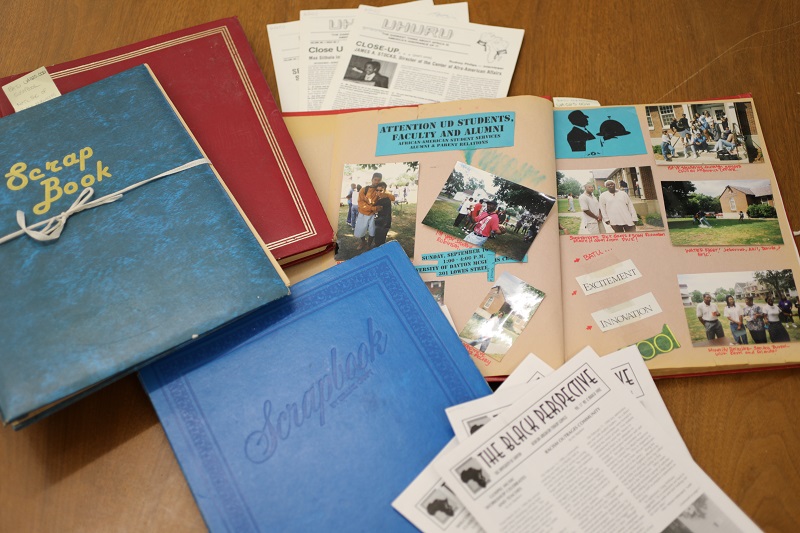University Libraries

Resolve: Ensuring Inclusion
By Megan Bullard
Diversity. Inclusion. Equality. We hear these words a lot. They’re popular; they sound good; and they make us feel good about ourselves. But what do they really mean to us, and more importantly, what do they mean to people who have been historically and systematically marginalized and silenced? These questions raced through my mind as I started what I consider the most important and most difficult task of my internship in the University Archives and Special Collections: processing the Black Action Through Unity (BATU) collection.
I started this process by examining the collection in detail so that I could get a sense of the organization I was documenting. I learned that Black Action Through Unity, or BATU, is a student organization established in 1967 to promote pride in the Black student community at the University of Dayton. Over the years, it has acted in many capacities for the Black student population: an alternative to the student government; a social club; an advocacy group that promotes political activism; and a cultural center that celebrates and shares African American culture.
As I read the articles in Uhuru and The Black Perspective — student publications related to BATU, looked at photographs and scrapbooks documenting the activities of BATU, and watched some of the VHS tapes, I felt sick to my stomach. The firsthand accounts of those who have struggled and continue to struggle each day to throw off the burdens of racism, intolerance and bigotry provided a visceral reminder of why the archival profession is so committed to providing a better, more nuanced understanding of the past and the voices and perspectives that have been suppressed.
I continued on with my work to process, describe and organize the collection, but in the back of my mind and the pit of my stomach, disgust and anger still burned. It is still there to this day, coloring these words as I type them out. I am glad it is there, and I hope it will remain — not because I want to be angry all the time, but because I know it is hardening into resolve: Resolve to do better than those that have come before me. Resolve to do better than I have in the past and to not let myself slip into the comfortable numbness of complacency. Resolve to teach those who come after me. I hope you will join me in this resolve.
Learn more about the collection
To learn more about BATU and the work of the University Archives and Special Collections, email archives@udayton.edu.
Other reflections from my archives internship
- “Bread Crumbs”: A research inquiry about a 1972 concert sends me and archivist Amy Rohmiller on a groovy scavenger hunt.
- "In Search of a Pencil": In reading the timeless wit and wisdom of Erma Bombeck, I discover I have something in common with the iconic humorist.
Megan Bullard graduates from Kent State University this month with a master's in library and information science. She has spent the fall semester as an intern in the University Archives and Special Collections. While working toward her degree, she has specialized in archives and special collections and how these can be reimagined to represent historically marginalized peoples.
